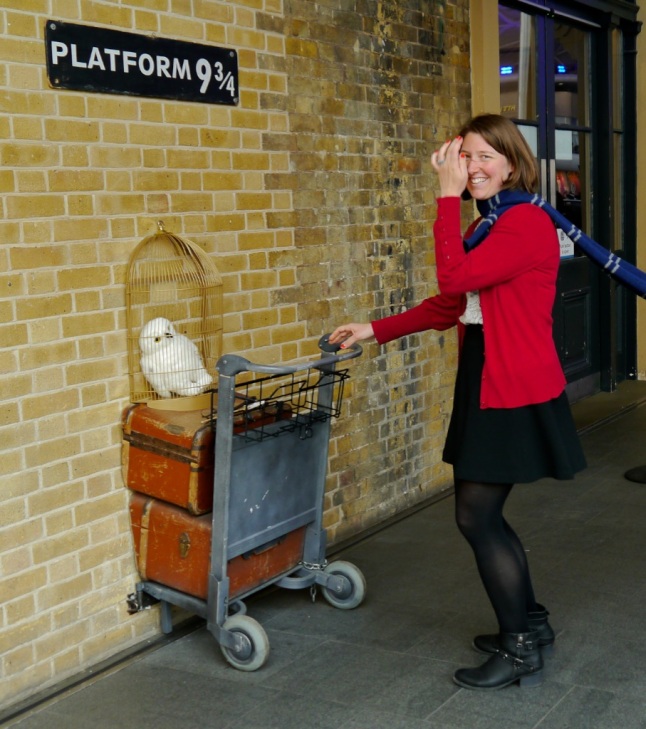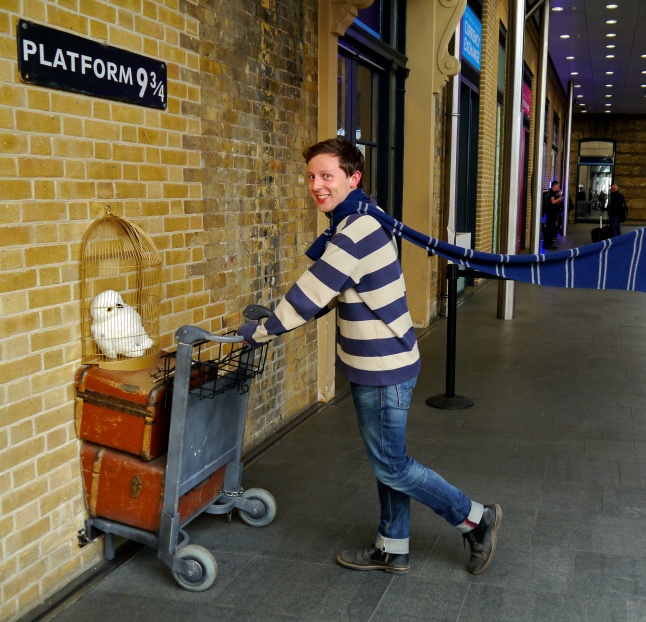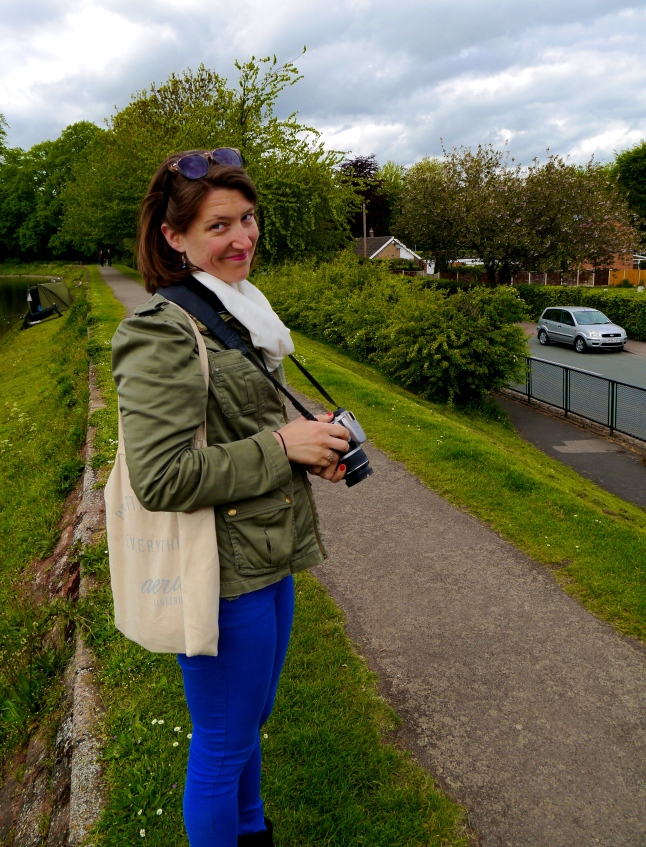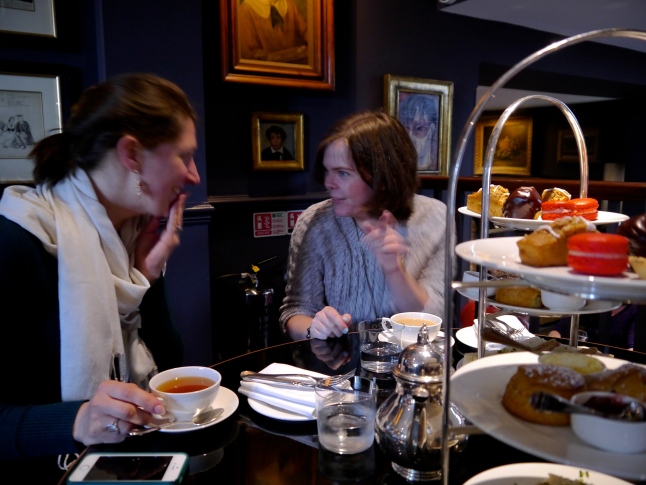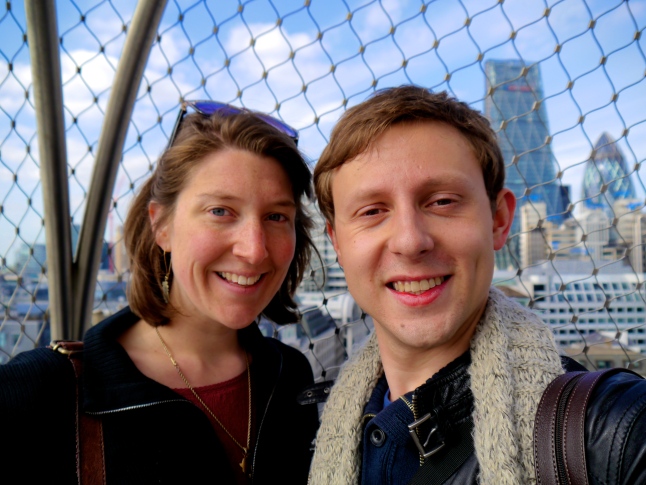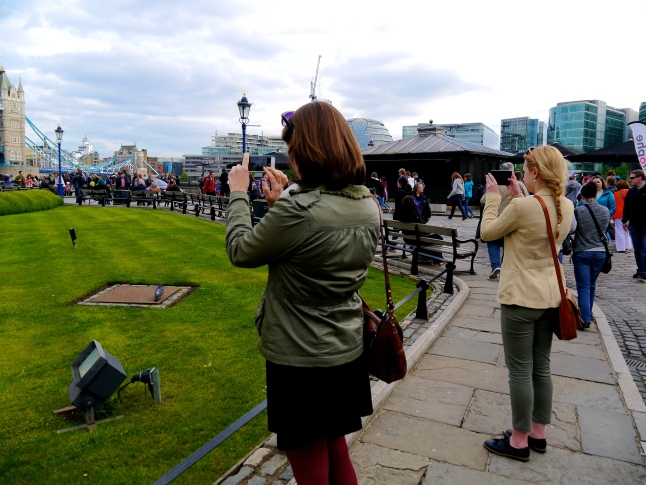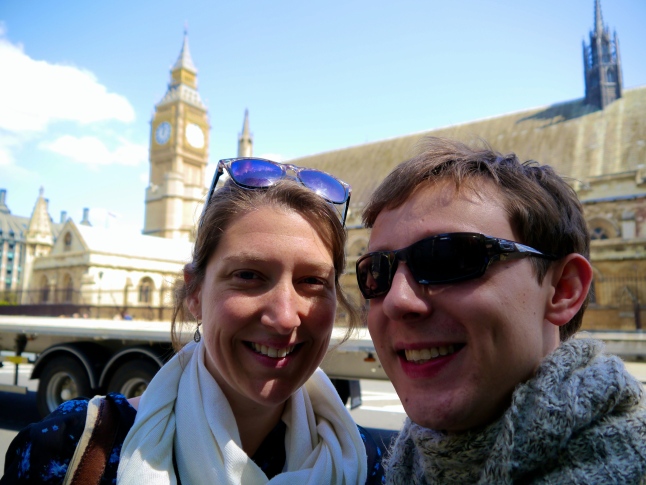* Or technically said, given that I no longer work as a teacher.
Since my last Things My Students Say post back in December, I’ve acquired a whole new set of anecdotes from similar moments, partially thanks to having my timetable switched up and almost completely changed at the end of January, which was just after the halfway point of my time teaching. Of course that meant going through the initial introductions again (always a fun experience… No, small French teenager, my name is in fact not Mr Pregnant… I went with just Tom from that point on.), as well as a whole new range of mistakes and stories that come from working with a different group of people. This change has also meant that I’ll have worked with about 600 different students from the ages of 11 to 18, so if I thought learning all the names last time was rather difficult, I’ve since learnt that I’m better off trying to remember the information and stories the kids volunteer in lessons and building on those rather than constantly checking the register and still getting the pupils confused. I had one student tell me that he’d heard about me from his sister, whom I’d taught earlier in the year. He very excitedly told me that she was a final year student, but given that by that point I had taught 5 such classes and nearly 150 kids in that year, sadly I couldn’t say anything particularly specific. I did also have to explain to one of my students that yes, I still didn’t know everyone’s name by the end of the year, but I remembered all the funny things they’d said and done, and other bits about them, so I did still know who they were in that sense. Thankfully I managed to avoid trying to explain the names I give to them… Let it be known though, the joy that a teacher feels when they can at last figure out who is absence in a class without needing to go through the whole register. It is a glorious day indeed.
Warning: parts of this post contain repeated use of strong language, and unfortunately it’s almost entirely direct quotations from my students. I can only apologise.
Part of the reason I’d chosen to apply to Strasbourg was because it was so close to the border with Germany, and so I figured I’d get the opportunity to speak German fairly often as well as French. Of course, I’d expected that to be the result of regular trips across the border and also just speaking to the various German tourists and Germans that live in the city, such as the few that I met through my choir there. I also had the opportunity of using my German in school a few times, usually when speaking to the German students there or even just to point out when the students had accidentally used a German word, which, given the similarities between English and German, especially in comparison to French, was quite often (I swear, I must have used the phrase “Das ist Deutsch” over a hundred times). However, I didn’t quite expect the use of my German to extend to reprimanding students… Two students were arguing as they came into my lesson and continued to do so as they sat down and got their things out. As I turned to the class and went to begin the lesson, silence fell and I heard one of these students shout “Ich ficke deine Mutter!” (I’ll fuck your mother!). I looked at the student in surprise at the sudden shout into silence and then turned to the board to write something. Being the mischievous thing that I am, I glanced over my shoulder at the student and said, in German, “You do know that I speak German, right?”. The student went as white as a sheet and started stammering some excuse about having only learnt the phrase that day and not knowing what it meant.
In a lesson where we were working on different and creative ways of expressing likes and dislikes for something, one student came out with the very British “This is not my cup of tea”. Bonus points earned there. This was the aforementioned lesson on Room 101, so we also discussed fears as well as dislikes. With ways of saying I’m afraid of, we had creative alternatives such as “I’m freaking out about”and “I poop myself at”. In addition to the recurring use of “shit” in some of these phrases for emphasis, I then took the opportunity to explore synonyms that they could use in other contexts, the results of which included “poop” and “excrement”. Some of my other favourite ways to say I don’t like included “I’m pissed off with”, “I don’t give a damn/fuck about”, “I’m sick of”, “I’m done with your shit”, “it grinds my gears”, and “it’s a pain in the neck/butt/ass”. We also had “I’m pissed”, at which point I did have to stop and explain the difference in meaning depending on American and British English. When doing the follow up lesson on the positive side of things, we had a similar range of phrases, including “I fucking love” and “I could kill for”. Of course, with all these profanities, I did have to explain that they would do well to find clean versions of these phrases for their exams and also generally for use with their other teachers. While I didn’t mind too much if they swore in my lessons, provided they did so in English and correctly, I didn’t think I could say the same for my colleagues.
In the lesson I also mentioned and briefly explained pet peeves, which led to various amusing conversations, especially when trying to explain the word “peeves”. Often this involved reference to Harry Potter with varying degrees of success, depending on the students’ familiarity with the books. Another difficulty was when one student misheard me and thought that we were about to have a conversation about potatoes…
In addition to mishearing things, the class also faced difficulties when individual students’ vocabularies contained words that weren’t particularly common knowledge, as was the case when student said his pet peeve was “when cats start licking their genitals”. “Genitals” turned out to require some explaining to quite a few students, a conversation that needed considerable tact and circumlocution to make the point without being too vulgar about it.
Despite the French penchant for a good strike and general expressions of dissent, they proved to find the task of expressing their annoyance with certain things rather more difficult. This in part was due to the fact that annoyance proved a concept that, at least linguistically, didn’t translate particularly easily from English into French.
In the follow up lesson, I decided to replicate the structure and so instead of pet peeves, we stuck with the behavioural idea and did turn ons. Yes, I did decide to discuss the idea of turn ons with a group of 15 and 16 year olds. Thankfully they kept things very much respectable. That being said, when it came to asking for synonyms for attractive, one enthusiastic lad, quite innocently, suggested “busty”, which did make me laugh. I did then of course explain that while the two may certainly be closely linked in his view, they did not mean the exact same thing.
One of the lessons that I did with some of my more advanced classes was an introduction to feminism, which included watching extracts of Chimamanda Ngozi Adiche’s TED talk, the excerpt from that used in Beyoncé’s Flawless at her VMA performance last year, and Emma Watson’s HeForShe campaign speech at the UN. Part of what I really enjoyed about giving these lessons, other than seeing how the class dynamic sometimes shifted slightly afterwards, was the way that the students phrased ideas or expressed themselves. Yes, there were still some linguistic issues, like the student who pronounced the words “human” and “woman” as indistinguishable to my ears, but there were also some great and interesting moments like the student who corrected herself when she said “girl” and wanted to say “woman”. Equally, there was the moment where English being a foreign language to them meant that they hadn’t yet picked up on all of the usual orders or phrases, when various students spoke about “women and men” and “the equality of women and men”. In one lesson on the subject, I got into a really interesting discussion with some of my students where they’d used models of international development and relations between groups of countries as a model for the patriarchy. For a completely different reason, I also hugely enjoyed the time that I did the lesson with one of my lower ability groups that was made up of entirely teenage girls. They turned out to be the most engaged group in that lesson, despite the fact that their English was more limited than my other groups.
Annual events or traditions are rather useful in the life of an English assistant and language teacher, as you can spin a whole lesson out of them each time one comes around. So naturally, just after term started again after Christmas, I did a series of lessons on New Year’s celebrations and resolutions. The best story and resolution combination was one of the students who told me that he’d had a particularly eventful New Year’s Eve party, and so the line he came out with was: “On New Year’s Eve, I kissed a dog. Next year I will try a cat.” It took his classmates who’d also been at the party to piece together the rest of the story for communal enjoyment.
One day, when there was a trip going on and the main class teacher had kept some of the pupils back to catch up on missed work, I found myself with a class of less than half the usual size, so once I’d found out why the rest of the class weren’t coming, I made some comment about being a bit thin on the ground that day. Of course this was met with some confused glances, so I wrote the phrase on the board and asked if anyone new what the phrase meant. However, French schools being what they are, quite a few of the pupils instantly took up pen and paper and proudly wrote it as the title for that day’s lesson, at which point I made the decision to let it be and move the lesson in that direction instead.
By some stroke of luck, despite being only a few years older than the oldest students at the lycée (and certainly not looking it when stood next to a couple of them!), I managed to go until 20th January, well into my second term teaching before I was mistaken for a pupil. I was going into a classroom that I’d recently booked and so the cleaning staff had gone in just before me, thinking it was free for the hour. I told them that I had a lesson in the room and so they got their things and went to leave, but told me I needed to wait outside so they could lock the room. When I looked at them quizzically, they explained that there had to be a teacher present in the room if it was unlocked, at which point I managed to smile and explain that I was, in fact, said teacher. The poor woman did go rather red and then tried to smooth things over by saying how young I looked, so I did explain that I was the English language assistant and wasn’t a fully qualified French teacher in their mid-20s who’d done a degree and passed the national teaching exams, which made her feel a bit better about the mistake.
Yet despite being mistaken for one of them, there were quite a few times when I was more aware of the age gap and my students did manage to make me feel noticeably older than them. The most direct of these was when a student asked how old I was, before commenting “it’s really old, 21”. Thanks. Another one of my students came in one day wearing a baseball cap with ‘1991′ written across the front. I stopped him and asked what year he was born in (1997) and then pointed at his hat. His explanation was that it was vintage. I’d like to think that I at least managed to pass myself off as sophisticated in their eyes, although somehow I doubt that was the case.
My students did also sometimes try and get away with things that when you’re in school seem possible and like a good idea, but from the perspective of a teacher rarely are. On various occasions I saw students with their phones, some more open than others, like the lads who were Snapchatting each other to their friends in other classes one time, whereas some students did at least try to be discreet about it. One girl though she was being very clever and secretive, texting behind her back, but in a class of 4 people, it’s a lot harder to hide. However, I did opt to take the route of being ‘the cool teacher’ (or at least I tried…), so when they could actually make good use of it as a learning tool rather than a distraction, I was quite happy for the students to use their phones in lessons. I did explain that I was happy to answer any vocab questions they had, although when it came to the more international classes who only knew the word they wanted in Russian or Azerbaijani or Japanese, online dictionaries proved the more effective solution.
In a stunning turn of events, it was often raining in Alsace. So when the sun came out and the sky was a bright shade of blue, I made the observation to my students. The reply I got was “Well of course, it does get sunny in summer in Alsace. Maybe not for you in England…”. Touché.
On that note, the French verb “toucher” proved to be a rather difficult one over the year. It’s one of those wonderful French verbs that has many meaning depending on the context, and can be translated as to hit, to affect (positively and negatively), and to have an impact on. However, as students of foreign languages are often want to do, the easy option was often taken, despite being a false friend. And so, people were touched by, amongst other things, terrorism, bullets and Obama’s absence at the Charlie Hebdo solidarity walk in Paris. I did start to despair after the 20th iteration…
In the case of two of my weaker ability classes at the lycée, there was somewhat of a tradeoff, in that their English skills weren’t particularly good, but that was usually the result of them being almost all international students who were learning English as their 3rd, 4th, 5th, or even in one case 6th, language (there was English, French, German, Spanish and Russian being spoken over the course of a single hour’s lesson one week) . It was a group where there were no more than 3 or 4 kids from the same country, which made for some interesting discussions of countries and also their families. My favourite was one particularly cheeky young lad who when I asked what his parents did, he told me very straight-faced that his father was the President of Albania. Given the various ranks of international students whose parents worked in Strasbourg at the different European institutions, this was genuinely a possibility at the school. He managed to keep up the act for a good 15 minutes, before bursting into laughter and telling me that actually his parents worked at the bakery in the middle of town. The best part about this was that I think I actually showed more recognition and admiration at this, as it was quite probably my most frequented bakery in the city, and I later realised I’d actually spoken to both his parents just a few days before when I had gone to pick up a baguette.
Having said that I struggled with learning the students names, I do feel that three of my favourite students should get a mention, the three that I came to refer to as The Trinity, which comprise of: The Crawler, Panda Girl, and The Dark Horse. The Crawler earned her name by managing to fall off her chair or else end up on the floor at some point in my lesson every week without fail. Whether it was a dropped pen, someone moving her chair at the last minute or just wanting to sit underneath the table for a while, she always found her way down there every fortnight, to the point where I started keeping a track of how long into the lesson we could get before she left her chair vacant. I think I may have given away my little game when I did say to her in one lesson that 35 minutes was a new record when she fell over, at which point some of her classmates started giggling when they realised what I meant. Oops.
Panda Girl had an aesthetic that bordered on the emo/goth side of the spectrum, and was a particular fan of thick black eyeliner that gave her look of someone who’s painted on black eye sockets as part of a skeleton fancy dress outfit. That being said, she was a pretty good student despite not being overly confident in her English abilities and I also have massive respect for her for the time that she openly discussed her depression in a lesson on Room 101 and things that we disliked.
The Dark Horse, so named because I wasn’t too sure what to make of her at the start, was just as giggly and bouncy as the other two when the three of them were together. She was the kind of pupil who on her own was rather quiet and didn’t speak up very often, but when the three of them were together you could barely get her to stop talking. For all that they were difficult to handle at times and did disrupt the class at times, they were the life and soul of the party in those Monday afternoon lessons, and with the three of them there I always knew I had a few students to rely on to voice their opinions and come and write things on the board when I needed a volunteer. Frankly, they were just too funny together to split up.
In addition to the game of how long it would take The Crawler to fall off her chair, I did also start making notes of the funny things they’d say, mainly for the purposes of including in posts like this and for when I met up with fellow English assistants. At one point when they realised I was doing this, they asked if I told their main English teacher everything they did, to which I responded “I don’t tell him everything… But I didn’t say what I do tell him.” At which point, they then got rather worried and vowed not to speak unless directly called upon in a lesson again. They also said that they felt betrayed and that they’d wrongly trusted me, so I did then relent and explain that I didn’t tell their teacher anything of what they got up to in my lessons, which in addition to granting them a sense of relief, led to them telling me that they trusted and loved me as their teacher and that my lesson was their favourite lesson of the week, as proved by the fact that The Crawler had doodled a drawing of me earlier that day and Panda Girl had written “OMG TOM!” on her hand to show to the other two in the lesson before mine. There weren’t many moment teaching that brought a tear to my eye, but that was one of them.
After I’d explained that I wasn’t in fact reporting on their activities to their teacher, I did also then make the joke that I was writing a movie script about them, at which point they declared that they would soon become Hollywood superstars and gain international fame. While I can’t help but feel that they have somewhat overestimated my writing abilities, I can at least say that, thanks to having friends in various parts of the world, my readership here is at least international, although again I’m not sure “fame” is quite the right word for their notoriety.
At one point in the year, we entered the season of the conseils de classe, which are essentially, a sort of meeting of parents, students and class teachers, with representatives from the former two groups selected to express the views of the group, rather than trying to bring 50+ people together at a single time within the school day. Part of my contract was that when the class teacher wasn’t teaching I was forbidden from teaching on the grounds that if there were an accident in one of my lessons, the main teacher wouldn’t be around to help. As such, when these meetings were happening on an almost daily basis over the course of a few weeks, I had a lot of cancelled lessons, including my fortnightly one with the class containing the Trinity. The lesson the week before with the other half of that class had been cancelled for the same reason, so the class knew that they didn’t have a lesson with me, and so they’d almost all gone home. Communication not always being a forté in my working environment meant that I didn’t find out about this until I got into the school for that lesson, being as it was my only lesson of that afternoon. On my walk into the school, I saw The Crawler and The Dark Horse walking in just ahead of me, so I made a note to ask them why they hadn’t been in the first hour of their double lesson of English with their main teacher. As it turned out, The Crawler had had somewhat of an episode where she was in fits of tears and in no state to be quiet or receptive in a lesson, so she’d been released for the hour with The Dark Horse to look after her. Still, she’d been feeling better after the break from school and so the pair had come back into school and came to the classroom hoping for a lesson with me. I did then explain that the class was cancelled, to which The Dark Horse replied “it’s the first time I’m disappointed about not having class.” I did stop them to ask why they hadn’t been in school for the lesson before and was given a brief explanation, so I sat down and asked whether The Crawler was ok. Her reaction, instead of pretending it was fine or seeming wary that a teacher was asking, was instead mainly shock and surprise, that a teacher actually seemed to care about her wellbeing. That may sound harsh, but under the French system there is no obligation for any of the teachers to pay heed to that, whereas in British high school pupils usually have a teacher assigned to their class whose main responsibility towards them is to check that they’re ok and not having any particular problems with any of their classes. Having a teacher ask about their wellbeing, especially one who only saw them once a fortnight at most, seemed quite out of the ordinary for them.
On a similar note, I also had two girls come at the start of one of my lessons with another group from their class, just to say and hi and that they wanted to be in my class that day. Quite what they had to look forward to in their own lesson, I don’t know, so that may not have been quite the compliment I took it as…
Mock exams in France, or at least in my lycée, were a relatively relaxed affair. I got roped into invigilating some of them (or proctoring, if you’re using the rather-appropriate-in-this-context American English word), but the goings on kept me reasonably entertained. When I made a comment at the end of one exam to the other teacher in the room about how none of the students had needed to leave or go to the toilet at any point, she smiled and said that they’d all had the Philosophy exam that morning, which, judging by the rate of students coming and going, was a diuretic exam.
While there were of course exceptions, quite a few of the students didn’t seem too stressed by the mocks. All the afternoon exams began promptly at 2pm, yet the sight of one student strolling in at 13:59 barely seemed to raise an eyebrow, although whether that was just the student, who knows. Another student in the same room decided after about an hour and a half that he needed a change in posture and so took off his shoes and sat cross-legged for the remaining 2 hours. As you do.
The mocks were relaxed for the teachers as well though. I spent most of the time reading or lesson planning, and one of the teachers I was with came out smiling, saying that she’d managed to get all her marking for the week done during the 3 and a half hour exam we’d just sat in on.
One of the teachers with whom I sadly never got to work directly taught the bilingual students who were taking English exams rather than the French bac. She also did quite a lot of the entrance exam interviews for English for the students applying to the school. And oh, she didn’t hold back. I had the good fortune to be in the room next door with a class on one of the days of interviews, and so got to overhear bits of the discussion, including one prospective student who was somewhat reluctant to speak in English. After she got quite frustrated with this student, she took them outside for a forceful talking to: “Do you want this conversation? Do you want a place here? Then let’s get it over with.” Don’t get on the wrong side of her; she’s a force to be reckoned with.
Despite not working with her classes, I did occasionally get consulted on matters regarding UK universities and English exam technique. By far my favourite such conversation, though, was when I was asked my opinion on how best to quote swearing in an academic essay. As you’ll have noticed, I don’t particularly see it as an issue (although granted this is not an academic essay), especially given that bad language has been overshadowed by content in my essays in the past (the Marquis de Sade’s work is quite an eye-opener…). However, the look given to me when I was asked the best way of writing “you’re gonna see some shit” made it quite clear that the correct response in this situation was using asterisks to star out all but the first and last letters.
On the subject of profanity (well who hasn’t tried to learn how to curse in a foreign language they’re learning?!), I managed to go several months before inaccurate pronunciation led to accidental cursing in my classes. And yet, having never had to face the issue previously despite having heard many a tale from my fellow English assistants, I had to teach the difference in pronunciation between ‘beach’ and ‘bitch’ twice in one week (see also: ‘piece’ and ‘piss’, ‘sheet’ and ‘shit’). Ah, long vowels.
For all that the language has been rather colourful so far, this was all from the 15-18 year olds in the lycée. However, by far the best example of such language was one lesson when I asked a class that had recently been on a trip to the UK (Liverpool and North Wales, no less) if they heard or read anything in English that they didn’t understand and wanted me to explain. At this point, a rather angelic student who could have passed for 10 or 11 rather than the 14 he claimed to be, said that a woman had shouted at him in a shop for touching something and that he didn’t quite understand what she’d said. I asked him to repeat, if he could, what the lady had said, and as he started speaking I began transcribing it onto the board. As luck would have it, his reply was: “Well, I think she was a bit angry, and she shouted “What are you fucking doing?” What does this mean please?” What, dear reader, do you do in that situation? My course of action, having decided from the off that honesty was probably the best policy, was to explain the use of expletives for emphasis in English. The class then being of the lively sort meant that one asked if ‘motherfucker’ could be used in the same way. Of course, one might as well go the whole hog, so when they also had seen the word ‘condom’ written somewhere and hadn’t understand, I explained that to them as well. Thank God another teacher didn’t walk into my classroom on that day.
Sometimes all it takes it a slight slip to produce a sentence that is both amusing in itself and also comically true. When having a discussion about the advantages and disadvantages of the French school system with a group of students whose English wasn’t the best of all my classes, one of them accidentally said “at the end of the day, we are exhausting.” I will admit, I did laugh and say “well, yes”, before he then realised his mistake and corrected himself.
With the same group, one of the other students had forgotten how to say that she was the eldest child in her family, so instead she just told me quite confidently when I asked if she had any brothers or sisters, “yes, but I am the boss.” You tell ‘em, girl.
At other times, the true statements come as the result of not having quite the range of vocabulary to express an idea more tactfully. When talking about cultural differences between France and the United Kingdom, one pupil plainly told me that “in France, people aren’t always very nice.” Hey, I didn’t say it.
In that lesson we also discussed French and British stereotypes, a.k.a. the staple lesson idea for any foreign language assistant, comparing the stereotypes of their country and the one that they happen to be working in. I have two highlights from this lesson across my various classes; the first was when discussing the stereotypes of physical appearance and one student said “dandy moustaches”, and the second was when one of the girls who had a particularly clear accent called out “would you like a cup of tea?” in the Queen-like of accents, little finger pointing and all.
One observation my close friend and fellow English language assistant Liz made was that a consequence of having a language as a foreign language meant that you were more likely to come up with phrases that were quite poetical and yet were a combination of words that no native speaker would naturally come up with, even if there was nothing obviously wrong with the sentence. I had one of these moments whilst discussing the value of literature with a class when a student quite plainly said that “books are travel for the spirit.” I’ll drink to that.
There was also an amusing albeit initially startling moment when one of my pupils wrote something about being “choked”. I asked him who’d choked him and eventually it transpired that he’d meant shocked, and got confused by the French choqué looking more akin to choked rather than shocked. Thankfully I found this out before I called Social Services.
Some of my favourite questions to get asked by students were the ones when we use the French word in English or vice versa. Such examples include: “how do you say chalet in English?”, “what is fiancé in English?” and perhaps the greatest of all, “what’s the English for lol?”. I did stop to explain where the last one came from in English, which the class found quite strange.
Phrases and idioms, as any language student will know, are particularly resistant to translation. This proved to be the case when one student, in the context of some of his classes being rather unruly, said to me: “I don’t like Biology, because… c’est le bordel” (it’s chaos), before looking at me and saying “bordel is brothel, no?”. Needless to say, I was quick to correct him before he implied that his Biology teacher was a pimp.
Yet despite all the linguistic flaws, there were also some students whose command of English was very good, to the point that they even started to make jokes and puns THAT ACTUALLY WORKED. In a class with my Première students (16-17) one asked, “what’s is cimitère in English?”. Before I’d gone to answer her question another student had replied “cemetery, or graveyard in British English”, which I found impressive enough that she knew both words and the correct usage. The icing on the cake was when one of my favourite students then called out, “oh yes, people are dying to get in there”. I think it was genuinely one of my favourite moments of teaching.
While some of the more amusing moments from my time teaching were usually at the hands of the classes with a lower level of English (although don’t get me wrong, I still got very lucky in having such able and engaged classes in the schools I worked in), working with the more advanced students meant that we were able to have some really interesting and valuable discussions. Myths and heros was one of the topics for the high school bac exams, and so in one lesson we had a really interesting discussion about what constitutes a hero, including the idea that death is central to hero status. When discussing colours and their associations, one of the students pointed out in the inherent racism in the idea of white being a pure and clean colour, and that led onto a quite critical but equally important discussion of the psychology and social causes and effects of racism. There was also a moment when one of my students said that there were no major diseases prevalent in France, to which another student said “but what about mental illnesses?”, and that in turn lead to a valuable discussion about mental health and stigma.
They were also a rather varied and interesting bunch as a whole, from the young lad who did hip-hop dancing and whose Dad worked in Mayotte, a tiny island off the coast of Madagascar, to the Vietnamese girl who enjoyed cooking traditional Vietnamese cuisine and Mac & Cheese, and from the student who told me her favourite subject was Chemistry because she liked atoms, to the final year who could claim 4 languages as his first, thanks to being born in Vienna to a French father and a Chinese mother whose best common language is English.
I’ll stop there for now, given that this post is already quite lengthy. I’ve still got quite a few more stories I’d like to tell, so I’ll save those for a future post, coming soon to a screen near you!
